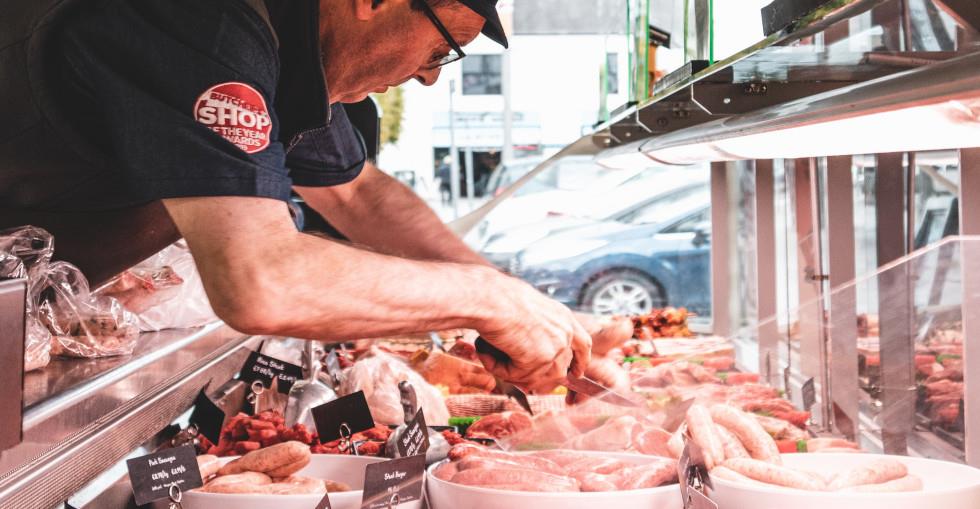A successful butchery business requires not only the skill of the butcher, but also research, marketing ideas, continuous development, and enthusiasm.
To grow a loyal client base and keep your business running, some important factors should be considered and implemented. Butcher stores in the UK are experiencing a decline, so it is vital that you dedicate your efforts to standing out from large food stores.
Market Differentiation
Supermarkets and online retailers are taking over the market. This is leading to constrained growth in the industry, so butchery business owners have to triumph in this situation.
Identifying what makes you stand out might be a little tasking, but it is not impossible.
Trade customers such as restaurants, sandwich bars, hotels, local schools, independent grocers, cafes, and takeaways are good target markets. Take note of their numbers, product ranges, supply frequency, and discount offers before approaching them.
Of course, offering discounts is a beneficial way to add value to your brand. Your discount can range between 5% and 20% and it should be dependent on the size of the order. Discounts can also be given to students, pensioners, and other target markets. Boost your sales during slow periods by offering discounts too.
Legal and Environmental Factors
Strict compliance with food safety legislation is paramount. You’ll need a food business registration licence.
For hygienic purposes, you can get a local environmental health officer to guide you and offer advice on specific things that need to be installed. The officer will also advise on compliance with the Food Safety Act and regulations requirements.
Food waste has to be disposed of properly to avoid contamination of the environment. This waste should not be fed to livestock either. Get an authorised waste carrier to get rid of the waste. Through the usual waste disposal channel, you can dispose of by-products of animals with your waste carrier. Up to 20kg of such waste can be disposed of weekly.
Remember that there are charges on carrier bags for retailers.
Conduct Market Research
The butchery business requires steady research to keep owners abreast with necessary information. With this research, butchery business owners can identify their business opportunities, strengths, threats, and weaknesses.
Invest time and funding in industry trends, research reports, and some sector statistics that are beneficial to you. Use the knowledge to give your business a new sense of direction.
Growth Potential
While butcheries have been declining over recent years, revenue is expected to take a positive turn through loyal customers who have an interest in sustainable and organic products.
While there is fierce competition, a butcher can make more than the minimum wage. According to Indeed, a butcher in London can make £14.40 an hour, and TotalJobs indicates the average annual salary of a butcher is £31,787.
Industry Facts to Keep in Mind
- According to the Agriculture and Horticulture Development Board (AHDB), the number of independent butchers in the UK has declined by 60% due to supermarket chains and other influences.
- £2.8 billion is generated from the UK beef supply chain.
- In terms of beef production, the UK is 75% self-sufficient.
Marketing Ideas
Advertise using the local newspaper in your area of operation. Customers want to know who they are purchasing from, so take time to introduce yourself and your brand. The leaflet to be distributed should contain a brief note of what your butchery business entails, product ranges, and their prices.
Of course, a website is crucial. Your website should include pictures of your team, your products and prices, and if you have the resources - a blog. Including a functional, online ordering system is highly advised.
Send emails to your customers regularly, thanking them for their patronage and informing them of special offers available, or interesting news.
Promotions and discount sales always do the trick. Promotions will tell customers more about your range and also build a relationship with them. Send in special recipes for them, and add some complimentary items to their order.
Financing Options
With the steady decline in the butchery business over the years (and the impact of the pandemic), you may need some financial assistance. With these funds, you can get updated equipment, expand the business, and fund other areas that need attention.
Check out the following finance options:
- Apply for a grant
- Request a loan
- Get help from family and friends.
Exit Plan
You may not be considering the sale of your business, but it is always important to keep it in mind. There are several reasons business owners sell their business. Sometimes it is strategic, and sometimes it is involuntary.
Regardless of your reason, your first step is to understand the value of your business. Start by conducting an accurate valuation. The value of your butchery will be buttressed by your equipment, location, client base, networks, external industry factors and other elements.
It’s crucial that you plan a timeline before your exit, and inform all key stakeholders.

